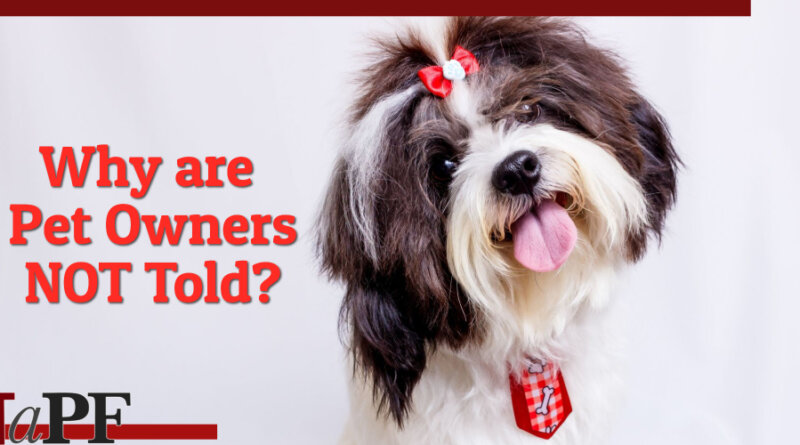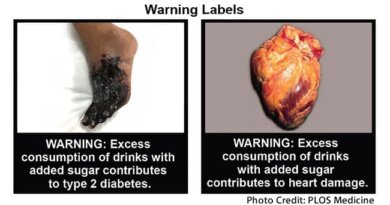The Disclosed and the Non Disclosed – Truth about Pet Food
In most US states, raw milk (un-pasteurized) is allowed to be sold for pet consumption. But, raw milk pet products are required to disclose they are ‘raw’. AAFCO has specific regulations for raw milk pet products which require the following disclosure to be “displayed in a conspicuous manner” on the label:
“WARNING: NOT FOR HUMAN CONSUMPTION – THIS PRODUCT HAS NOT BEEN PASTEURIZED AND MAY CONTAIN HARMFUL BACTERIA.”
This required label disclosure is fair. Most consumers are familiar with pasteurized milk products, thus when a product is not pasteurized it is required to be disclosed to the consumer. Pet owners should be informed to what they are buying.
But…
Consumers in the US are also familiar with USDA inspected and passed meats. This quality of meat is the ONLY quality of meat sold to US consumers (federal law requires all food to only utilize USDA inspected and passed meats) thus it is the ONLY quality of meat they know.
However in pet food, the FDA makes an exception to what is familiar to consumers. The FDA allows pet foods to use non-inspected and/or non-passed meats (condemned) – which are illegal to use in any food, human or animal food.
Former FDA Director of Center for Veterinary Medicine – Dr. Steven Solomon – stated in 2019: “we do not believe that the use of diseased animals or animals that died otherwise than by slaughter to make animal food poses a safety concern and we intend to continue to exercise enforcement discretion.”
Thus…even though the pet food label includes the familiar ingredient (as example) “Chicken”, the chicken in pet food could be something VERY UNFAMILIAR to you.
But, unlike with raw milk for pets, there is no required disclosure for non-inspected, condemned meats. No AAFCO regulation, no FDA rule, nothing.
In July 2022 we submitted a Citizen Petition to FDA evidencing that federal law requires disclosure to pet food consumers. Specifically we evidenced that federal law does not allow two ingredients to have the same common name if they are different classifications of food. Such as human food ‘chicken’ which is required to be USDA inspected and passed and pet food ‘chicken’ which FDA allows to be condemned and/or non-inspected.
Specific to animal food, federal law states: “The common or usual name of a food, which may be a coined term, shall accurately identify or describe, in as simple and direct terms as possible, the basic nature of the food or its characterizing properties or ingredients. The name shall be uniform among all identical or similar products and may not be confusingly similar to the name of any other food that is not reasonably encompassed within the same name.”
In no uncertain terms, federal law requires pet food ‘chicken’ (feed grade) which is NOT required to be USDA inspected and passed to have a different name than human grade ‘chicken’ which IS required to be USDA inspected and passed. Federal law requires these two ingredient names cannot be “confusingly similar”.
Unfortunately, nineteen months later the FDA has still NOT responded to our Citizen Petition. So…as things currently stand…

With raw milk, regulatory demands consumers be informed.
But with illegal (allowed by FDA) condemned animal material, regulatory refuses to warn consumers.
(It is almost as if there is a secret non-disclosure agreement between FDA and feed grade pet foods that utilize condemned animal material.)
Until FDA requires disclosure of condemned material allowed in pet food, pet owners must be diligent asking manufacturers: Are ingredients in your pet food human grade or feed grade?
To learn more about the differences between human grade ingredients and feed grade ingredients, Click Here.
Wishing you and your pet(s) the best,
Susan Thixton
Pet Food Safety Advocate
Author Buyer Beware, Co-Author Dinner PAWsible
TruthaboutPetFood.com
Association for Truth in Pet Food

Become a member of our pet food consumer Association. Association for Truth in Pet Food is a a stakeholder organization representing the voice of pet food consumers at AAFCO and with FDA. Your membership helps representatives attend meetings and voice consumer concerns with regulatory authorities. Click Here to learn more.
What’s in Your Pet’s Food?
Is your dog or cat eating risk ingredients? Chinese imports? Petsumer Report tells the ‘rest of the story’ on over 5,000 cat foods, dog foods, and pet treats. 30 Day Satisfaction Guarantee. Click Here to preview Petsumer Report. www.PetsumerReport.com
Find Healthy Pet Foods in Your Area Click Here

The 2024 List
Susan’s List of trusted pet foods. Click Here to learn more.

The 2023 Treat List
Susan’s List of trusted pet treat manufacturers. Click Here to learn more.



